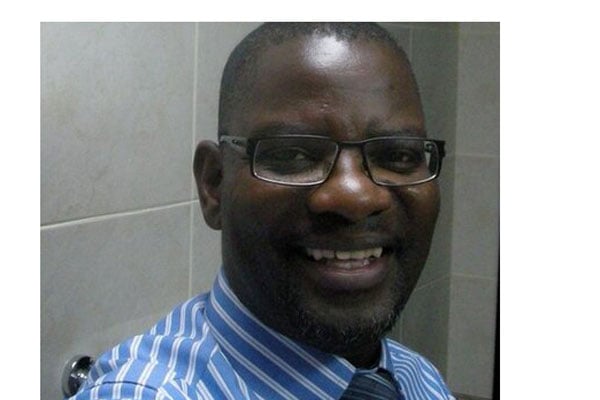Why resources should be spent on more serious killers than Covid-19

Author: Musaazi Namiti. PHOTO/FILE
What you need to know:
- Several public figures, including President Museveni and his wife Janet, Prime Minister Ruhakana Rugunda and the minister of Health, Dr Jane Ruth Aceng, have had their jabs in full public view and in broad daylight to try to allay concerns about the side effects of the vaccine and encourage more people to get vaccinated.
Uganda has joined the rest of the world in rolling out its Covid-19 vaccine programme, which is commendable.
Several public figures, including President Museveni and his wife Janet, Prime Minister Ruhakana Rugunda and the minister of Health, Dr Jane Ruth Aceng, have had their jabs in full public view and in broad daylight to try to allay concerns about the side effects of the vaccine and encourage more people to get vaccinated.
Every effort being made to bring Covid-19 under control is good news. So far, the vaccine is the best news we have had. The country’s healthcare professionals are doing the best they can to prevent the virus from stealing more lives.
However, when you look at the leading causes of death worldwide, and in Uganda in particular, you wonder whether we are doing the right thing to ban concerts (from which singers make a living), to press ahead with the curfew and spend large sums on Covid-19 while paying negligible attention to the deadliest diseases we have lived with for decades.
Let us look at the figures.
Noncommunicable diseases (NCDs) — cardiovascular diseases, cancer, chronic respiratory diseases and diabetes, etc — kill 40-plus million people every year, according to the World Health Organisation (WHO).
By comparison, Covid-19 has so far killed 2.9 million people, according to Johns Hopkins Hospital in the US, which runs a Corona Resource Centre responsible for collecting data on the pandemic.
Covid-19 ranks not as the second or third-deadliest disease in the world. It is the sixth-deadliest. Cardiovascular diseases top the list.
Of course, every life lost to Covid-19 is sorely missed. Even if we lost just one person, it would be a big loss since death does not renew life (contrary to what religion says).
In the entire African continent, Covid-19 has so far killed 117,059 people, according to Johns Hopkins Hospital. By comparison, traffic accidents in Africa killed 297,000 people in 2019, according to the WHO.
If you divide this number by the 54 countries in Africa, you get 5,500 deaths in each country, which is not to say that each African country lost this number to traffic accidents. The idea is to show that it is a much higher figure than the Covid-19 death toll in many African countries, with the exceptions of South Africa (53,498), Egypt (12,611), Tunisia (9,553) and Morocco (8,927).
Most African countries have Covid-19 deaths ranging from 15 to 3,000. Only a handful have thousands of deaths. Covid-19, therefore, kills mercifully.
In Uganda, one of the countries least affected by Covid-19, some 334 people have succumbed to the pandemic.
The problem is that a country that has lost 300-plus people to Covid-19 is spending billions of shillings of its meagre resources — the World Bank and IMF have provided $300m and $490m respectively in budget support — on the pandemic, but it is doing almost nothing about traffic accidents which, in 2019, killed 3,880 people. No serious effort is being made to curb traffic accidents.
If we all get vaccinated and nobody in Uganda is dying from Covid-19, yet thousands continue to die from traffic accidents — in 2019 there was an increase of 5 per cent in traffic accident deaths — can we convince anyone that we care about lives?
The lesson these numbers provide is that a country, for example, fighting Covid-19 while also devoting huge sums on NCDs or traffic accidents is doing a much better job. Sad to say, few countries are doing this.
Mr Namiti is a journalist and former
Al Jazeera digital editor in charge of the Africa desk
[email protected] @kazbuk




